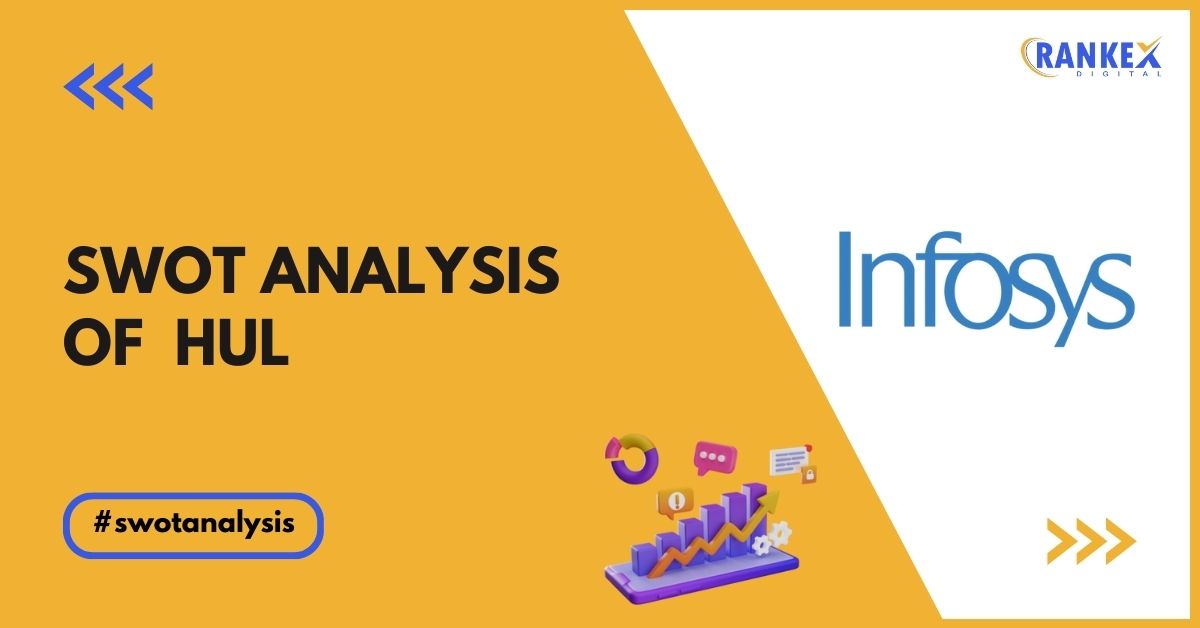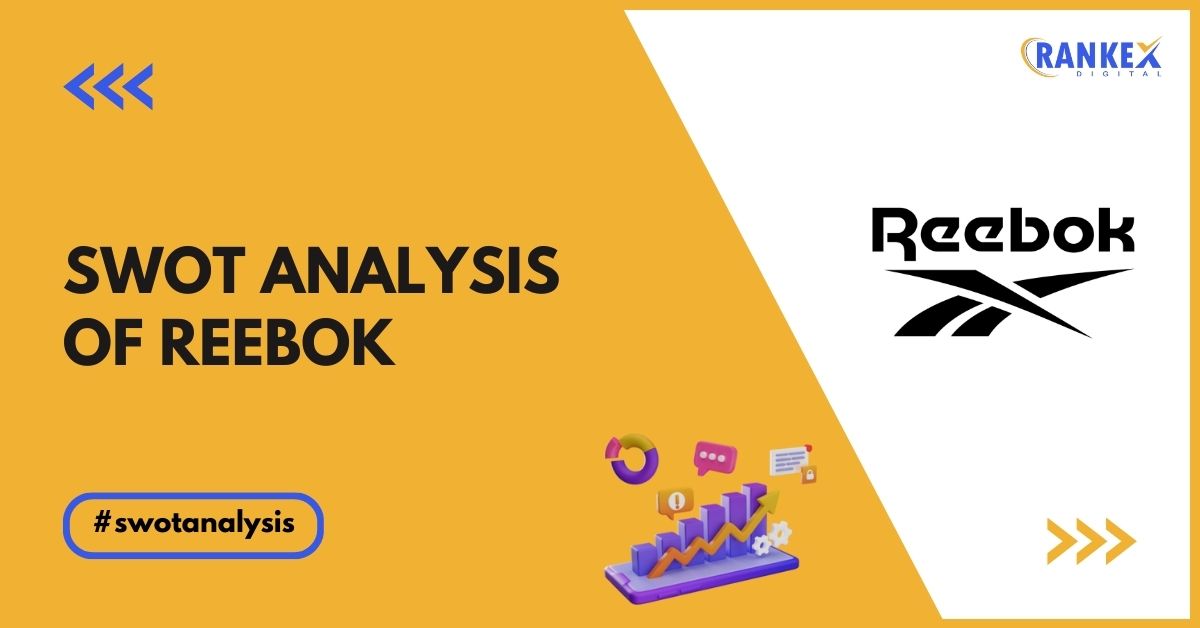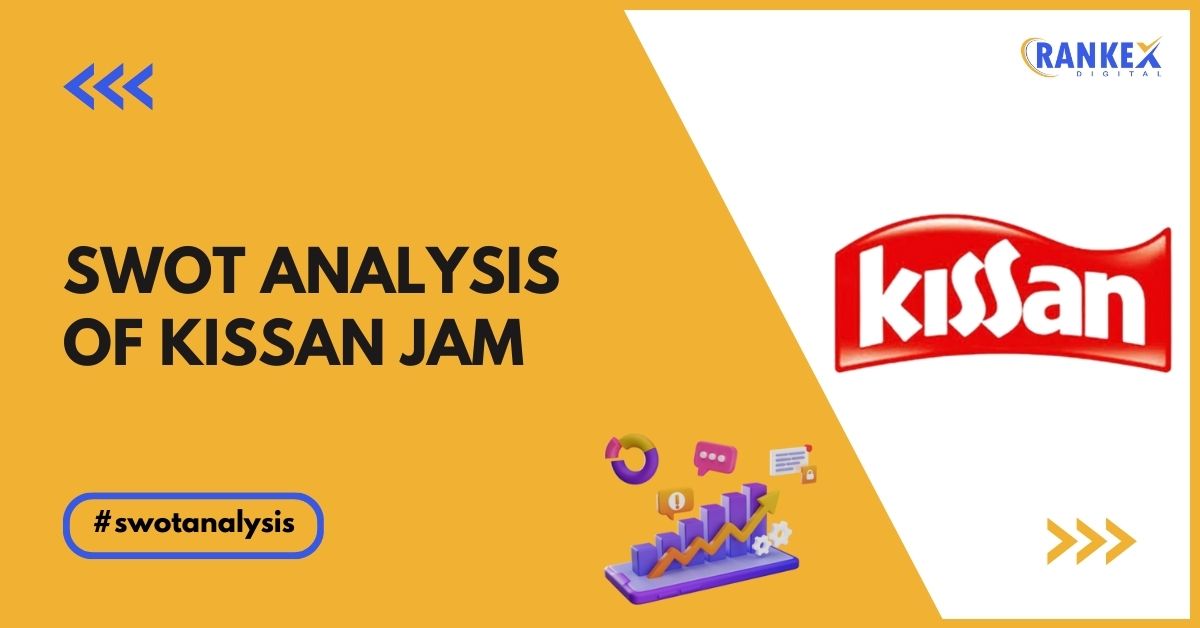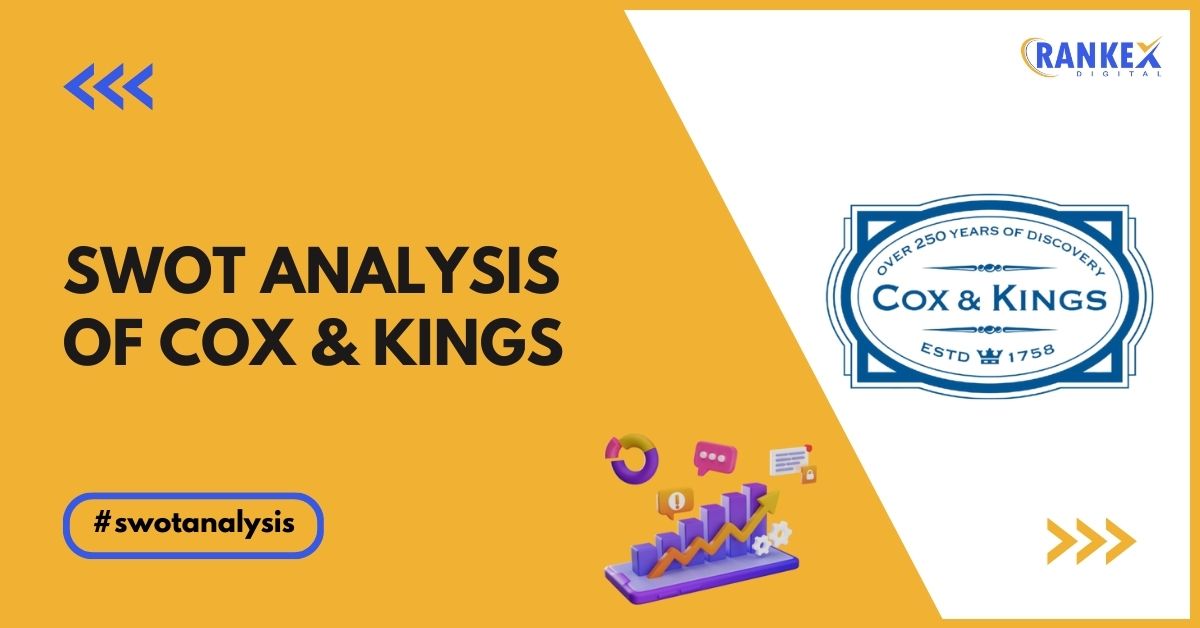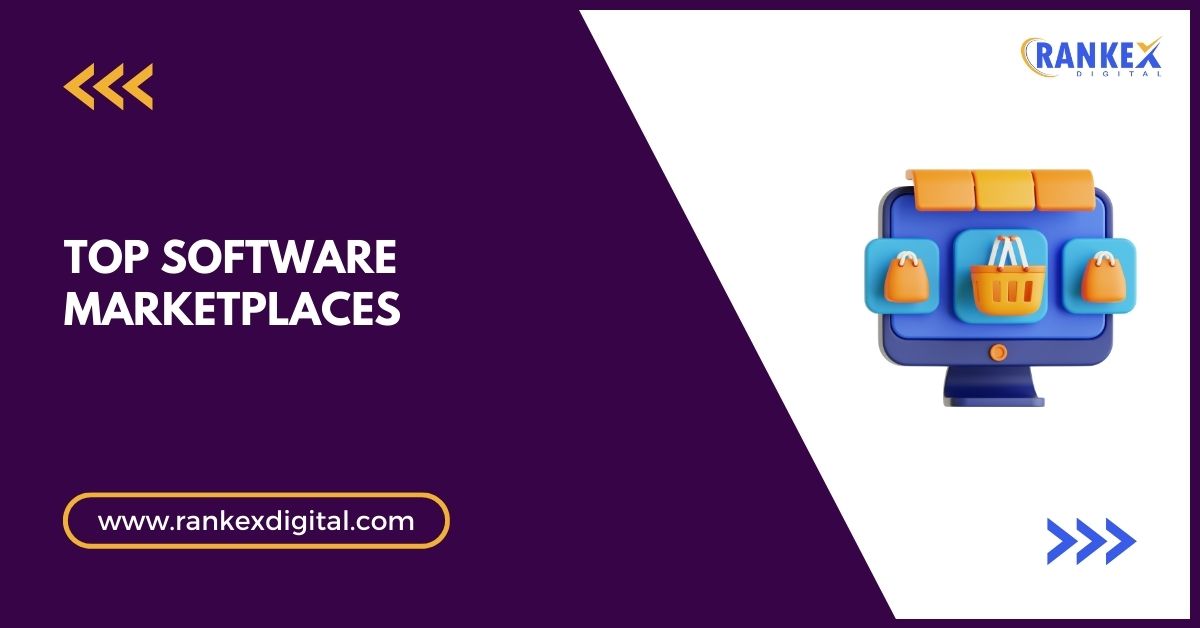Infosys, one of India’s largest and most prestigious IT service providers, has consistently been at the forefront of the global technology landscape. Established in 1981, Infosys has expanded its presence globally with a robust suite of services in consulting, technology, outsourcing, and next-generation digital services.
As the company continues to evolve in an ever-changing IT industry, understanding its Strengths, Weaknesses, Opportunities, and Threats (SWOT) is essential for assessing its position and future strategy.
This blog provides an updated SWOT analysis of Infosys, giving a detailed insight into the company’s current standing and future potential.
In this blog
Overview of Infosys
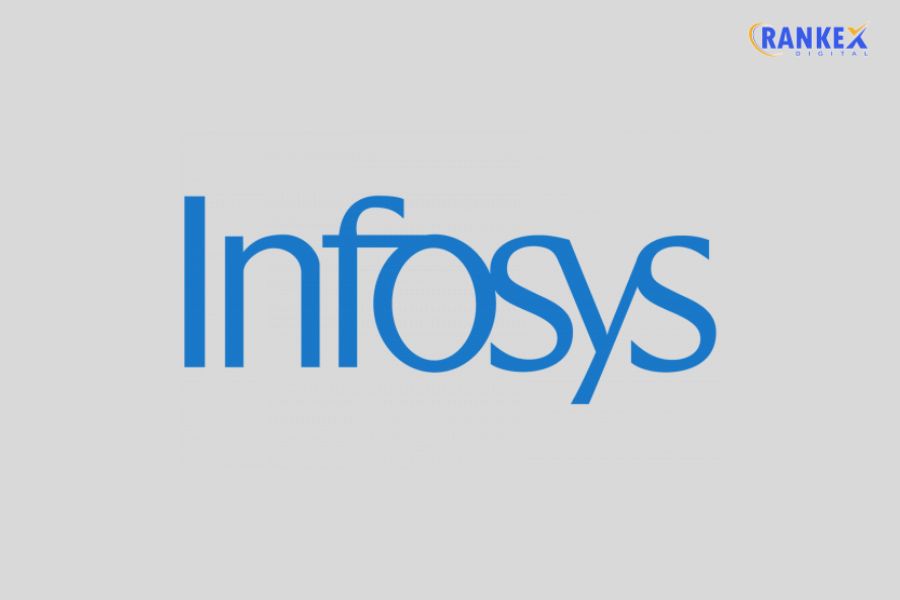
| Founder | N. R. Narayana Murthy |
|---|---|
| Year Founded | 1981 |
| Origin | Pune, India |
| Headquarters | Bangalore, India |
| Industry | Information Technology & Consulting |
| Annual Revenue | $17.5 Billion (FY 2023-24) |
| Employees | 350,000+ (Globally) |
Infosys is a global leader in IT services and consulting, offering a wide array of services ranging from cloud computing, AI, and cybersecurity to blockchain and automation. The company is well known for its strategic approach toward digital transformation and its emphasis on sustainability and inclusivity.
Current News on the Market on Infosys
- Partnerships and Collaborations: Infosys has been expanding its global footprint through strategic partnerships with tech giants like Microsoft, Google, and Amazon Web Services (AWS) to enhance its cloud computing and AI services.
- Focus on Sustainability: Infosys has reaffirmed its commitment to becoming carbon-neutral by 2040, investing heavily in sustainable technologies and operations. It continues to make strides in areas like renewable energy and carbon management solutions.
- Digital Transformation Initiatives: Infosys has been at the forefront of helping businesses digitize their operations, leading several large-scale projects in digital transformation for industries like healthcare, finance, and manufacturing.
SWOT Analysis of Infosys
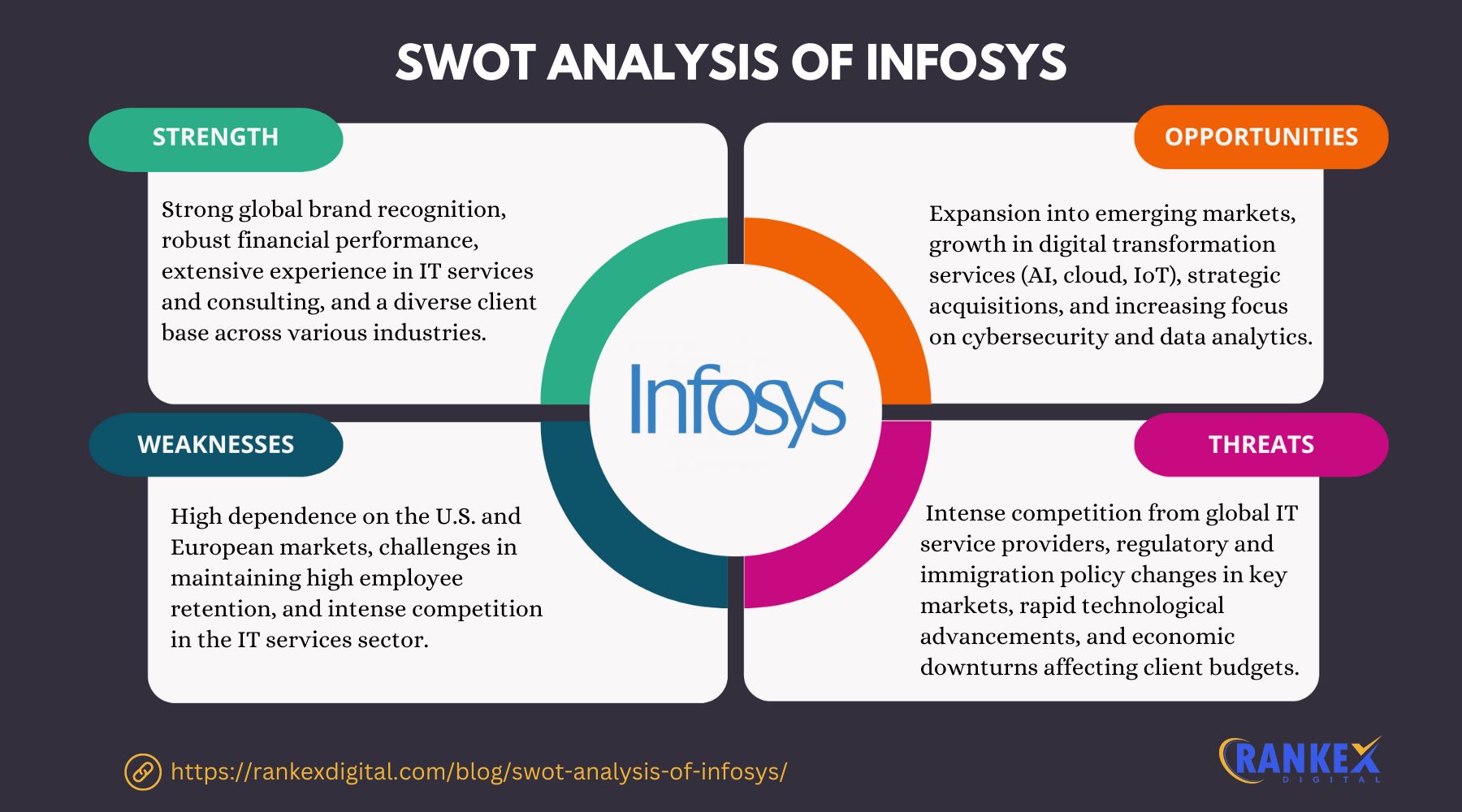
Strengths of Infosys
- Strong Brand Equity and Global Presence
Infosys has established itself as a globally recognized IT giant with a strong foothold in over 50 countries. Its reputation for delivering high-quality solutions and services contributes to its trusted global brand. - Diverse Service Portfolio
From AI to cybersecurity and cloud computing, Infosys offers a broad range of IT and business consulting services. This diversity helps the company to meet the varying needs of its global clientele across multiple industries. - Strong Financial Performance
Infosys consistently delivers impressive financial results. In FY 2023-24, the company generated $17.5 billion in revenue, driven by steady client acquisitions, digital service expansions, and effective cost management. - Commitment to Sustainability and Innovation
Infosys is committed to being carbon-neutral by 2040 and consistently invests in innovative technology solutions such as AI, machine learning, and blockchain. This focus keeps Infosys ahead of its competitors in the rapidly evolving tech space. - Experienced Leadership and Skilled Workforce
Infosys boasts a strong leadership team with deep industry expertise. Additionally, the company employs over 350,000 skilled professionals, making it a powerhouse of talent that continuously drives its growth and success.
Weaknesses of Infosys
- High Dependence on North American Market
A significant portion of Infosys’ revenue is derived from the North American market. This over-reliance exposes the company to risks associated with economic downturns or policy changes in the region. - High Attrition Rates
Like many other IT companies, Infosys faces high employee attrition rates, which can lead to talent gaps and increased costs related to recruitment and training. - Challenges in Scaling Emerging Technologies
Despite its efforts in developing new technologies, Infosys faces challenges in scaling emerging tech offerings, such as blockchain and AI, to match market demand and meet client expectations. - Operational Complexities
Managing large-scale global operations can pose complexities, especially with varied legal, compliance, and taxation systems across different geographies.
Opportunities for Infosys
- Expansion into Emerging Markets
Infosys has the potential to further penetrate emerging markets in regions such as Africa, Latin America, and Southeast Asia. These markets are increasingly looking for digital solutions and consulting services, providing a significant growth opportunity. - Increased Demand for Digital Transformation
The global shift toward digitalization offers Infosys a massive opportunity to expand its digital services, such as cloud computing, AI, and cybersecurity, particularly in industries like healthcare, finance, and retail. - Strategic Acquisitions and Partnerships
Infosys can leverage its financial strength to acquire smaller tech firms that specialize in cutting-edge technologies. Strategic partnerships with tech giants, start-ups, and academic institutions could further enhance its capabilities. - Focus on Sustainability Solutions
As businesses across the globe adopt sustainability as a core part of their operations, Infosys is well-positioned to offer IT services that contribute to sustainable business models, such as energy-efficient cloud solutions and digital tools for carbon management. - Expanding the Product Portfolio
By diversifying into newer areas like quantum computing, metaverse development, and 5G technology, Infosys could create a broader service portfolio, gaining a competitive advantage over other IT service providers.
Threats to Infosys
- Intense Competition
Infosys operates in a highly competitive environment with global IT players like Tata Consultancy Services (TCS), Accenture, and IBM. This competition can affect its market share, pricing strategies, and client retention. - Global Economic Uncertainty
Economic downturns, inflation, and currency fluctuations can have an adverse effect on Infosys’ revenue streams, especially in regions heavily affected by economic instability. - Cybersecurity Threats
With the increasing digital transformation comes the risk of cyberattacks. While Infosys invests heavily in cybersecurity, any breach can damage its reputation and lead to financial losses. - Regulatory and Political Changes
Changes in data protection laws, trade policies, and political instability in key markets like the US and Europe could impact Infosys’ business operations and growth. - Technological Disruptions
Rapid technological advancements, such as AI and automation, could disrupt the traditional IT services market. Infosys needs to remain agile and adapt to these changes to avoid obsolescence.
Competitors of Infosys
Infosys operates in a highly competitive market, facing direct competition from global and regional IT service providers. Some of its top competitors include:
- Tata Consultancy Services (TCS)
TCS, another Indian IT giant, is one of Infosys’ strongest competitors. It offers similar services, including consulting, IT solutions, and digital transformation. TCS has a larger market share and revenue, making it a formidable rival. - Accenture
A global leader in consulting and professional services, Accenture competes directly with Infosys in digital transformation, cloud services, and technology consulting. Accenture’s global reach and strong client base pose a challenge to Infosys. - Wipro
Wipro, like Infosys, is a major player in the global IT services market. It offers similar services in cloud computing, AI, and business process outsourcing, making it a strong domestic competitor. - IBM
IBM is a global technology leader with a strong focus on cloud computing, AI, and digital transformation. Infosys faces stiff competition from IBM, particularly in advanced technology services and consulting. - Cognizant
Cognizant is another key competitor of Infosys, particularly in North America and Europe. It provides IT consulting, systems integration, and outsourcing services, directly competing with Infosys’ offerings in these regions.
Conclusion
The SWOT analysis of Infosys highlights the company’s strong market position, global recognition, diverse service offerings, and commitment to sustainability.
However, Infosys must address its weaknesses, such as dependence on specific markets and high attrition rates, while capitalizing on emerging opportunities in digital transformation, sustainability, and expanding markets.
By mitigating threats posed by competition, cybersecurity risks, and global economic conditions, Infosys can continue to lead in the IT sector and drive innovation in the years to come.
Frequently Asked Questions
1. What are the key strengths of Infosys?
Infosys’ key strengths include its strong global brand, diverse service portfolio, financial stability, commitment to sustainability, and a skilled workforce of over 350,000 employees.
2. How does Infosys contribute to sustainability?
Infosys is committed to becoming carbon-neutral by 2040 and offers eco-friendly IT solutions, including energy-efficient cloud services and sustainable digital transformation initiatives.
3. What are the major threats Infosys faces?
Infosys faces threats from intense global competition, cybersecurity risks, economic downturns, regulatory changes, and rapid technological advancements in the IT sector.
4. How is Infosys expanding its global footprint?
Infosys is focusing on expanding its presence in emerging markets like Africa, Southeast Asia, and Latin America, as well as enhancing its digital service offerings worldwide.
5. What opportunities can Infosys capitalize on in 2025?
Infosys can capitalize on opportunities in digital transformation, expanding sustainability services, entering emerging markets, making strategic acquisitions, and diversifying its tech portfolio with innovations like quantum computing and 5G technology.

